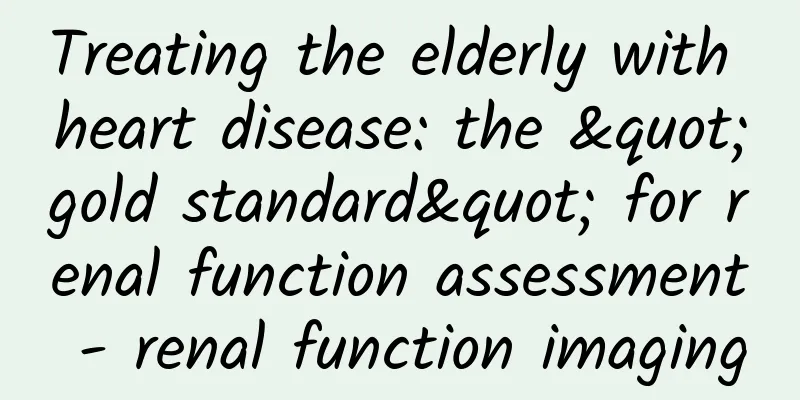Treating the elderly with heart disease: the "gold standard" for renal function assessment - renal function imaging

|
For the elderly, the decline in kidney function is affected by both aging and disease. Chronic diseases that are common in the elderly, such as hypertension, diabetes, coronary heart disease, stroke, chronic obstructive pulmonary disease, etc., are closely related to kidney function. The elderly have reduced resistance and are prone to various infections, which also increases the risk of kidney function deterioration. Aging lowers the threshold of kidney damage. The kidneys are the main organs for excreting metabolic waste and drugs, and are also organs that are most susceptible to drug damage. Elderly people have many chronic underlying diseases, so they must take many related drugs. There are many elderly patients who take 5 or even more than 10 drugs. Elderly comorbidities combined with renal impairment increase the complexity of medication, and adverse drug reactions increase the risk of renal injury. Accurate assessment of renal function helps individualized treatment, and adjusting drug dosage and usage according to renal function can avoid organ damage and adverse reactions. Therefore, renal function status and treatment methods and drugs affect each other. Elderly renal function decline may be a physiological change, or there may be pathological factors. Kidney disease is called the "silent killer" because its symptoms are relatively hidden, often resulting in patients seeking medical treatment late and lack of monitoring and prevention before entering end-stage renal disease. If pathological factors can be detected early and targeted treatment can be given, it can help delay renal function decline. The "integrated treatment model for chronic kidney disease" of early screening, early intervention, early diagnosis and early treatment, and correct assessment of renal function are the basis for the prevention and treatment of chronic kidney disease, especially for patients with high-risk factors such as diabetes, hypertension, high uric acid, high blood lipids, obesity, etc., the renal function status seriously affects the patient's prognosis. Accurate assessment of renal function is a reference for formulating relevant disease diagnosis and treatment measures, and renal function status also affects the efficacy and scope of application of some drugs. How to evaluate kidney function? At present, the most convenient and commonly used indicator for determining kidney function in clinical practice is serum creatinine, a more accurate indicator is the estimated glomerular filtration rate, and the "gold standard" is renal function imaging. Accurate renal function assessment is a combination of clinical symptoms, serum creatinine, cystatin C, estimated GFR, radionuclide imaging, and a comprehensive evaluation of tubular reabsorption and endocrine function. Therefore, seeking help from a nephrologist is the most direct way. |
<<: Medical care for the elderly: How to prevent influenza during the peak season
Recommend
What to do if nipples bleed
If the nipple is bleeding, it may be because the ...
[Medical Q&A] What is the difference between spectral Doppler ultrasound and color Doppler ultrasound?
Planner: Chinese Medical Association Reviewer: Wa...
Are breast enhancement creams harmful? Learn to use it correctly in the future
Nowadays, there are many breast enhancement produ...
How to replenish Yang Qi for women
In our lives, most women suffer from the disease ...
Vaginal bleeding examination steps
Women's vagina often has some minor problems....
What is the reason why girls have thick limbs?
In the past when the economy was very underdevelo...
If your body shows these 3 high-risk signs, it means you are really too tired!
Planning and production Source: Curious Doctor Re...
Is Chinese medicine good for pregnancy?
If a pregnant woman shows symptoms of threatened ...
Do pregnant women need to eat bird's nest every day?
Bird's nest is a very good health-preserving ...
Gynecological hysteroscopy
The uterine cavity is the warm nesting place for ...
Breast augmentation post-care
Today, we are going to face a question: how to ca...
Medical abortion bleeding but no gestational sac expelled
Medical abortion is achieved by taking drugs that...
Science solves the problem | High sugar and high fat content is not allowed? Understand these 5 things to eat mooncakes safely
In the cool and refreshing days of autumn, we wel...
Things to note when you have nausea after curettage
We all know that if a woman's uterine membran...
What do a shrunken and enlarged gallbladder mean?
The gallbladder is an important organ in the huma...









